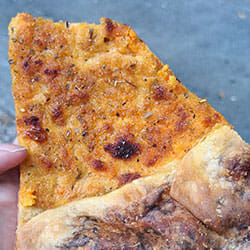Some of you might already know about them, but I have written here about them from a fresh angle.
Lots of people aren’t good at subtraction?
When you’ve done your shopping and the cashier is an older Australian woman, she will often add up the amount of change out loud as she hands it to you. It seems to me that there are a lot of people who are not used to doing the subtraction mentally. For example, if you are buying something for $38 and pay with a $50 note, your change is $12, but first you are handed a $10 note with the words “forty eight”, then you are handed a $2 coin with the word “fifty.” The cashier adds the amount of change to the price of the item ($38) to get the amount you handed over ($50).
And in Japan when you buy something for say 8,100 yen, you can pay with a 10,000-yen note and a 100-yen coin, so that you get a 2,000-yen note as your change and avoid getting more coins, but I once had a surprising experience in Australia when I tried paying for something that cost $31.50 with a $50 note, a $1 coin, and a 50-cent coin ($51.50). The cashier made a puzzled face and handed me a huge amount of coins. When I counted the change, she had handed me the wrong amount, so I started over by handing her a $50 note only. Some people can’t do the calculation when you give them fractions of dollars in coins, so I have decided not to use any way of paying that is too complicated (although it’s not really complicated).
People respond when you sneeze
I think this is a very common practice in Western countries, not just Australia, but it is no exaggeration to say that if you sneeze, someone will always say, "Bless you!” Once when I was shopping at Kmart, a male customer sneezed and another male voice said, "Bless you!" from so far away that I couldn't even see his face, which made me giggle. It was such a comforting and Australian thing to do. When the opposite happens and nobody says anything, it feels slightly sad and lonely (LOL).
People wearing light clothes, even in winter
Winters on the Gold Coast are relatively warm, but even in the winter, you see a lot of men in T-shirts, shorts, and flip-flops, and women in sleeveless mini dresses and sandals. Even when it's cold enough to put on a sweater, they still walk around dressed like that, so it looks to me as though their average body temperature is higher than Japanese people. People swim in the sea in bathing suits even in winter, and they turn the cooling on even in winter in places like offices, public buses, and taxis, which means it doesn’t feel very wintry here.
Large people who eat surprisingly little?
You might tend to think that large, well-built Aussie males must surely eat a lot, but most of them don’t eat huge amounts out of proportion to their build. Unlike Japanese people, Australians aren’t in the habit of eating a lot of rice, and even at conveyor-belt sushi restaurants, people eat on average three to five plates while I, being Japanese, sometimes eat eight to ten plates (too much, right [LOL]), so people are surprised and say, “For such a small build (I’m actually not small…) you can sure eat a lot!” At the same time, a man with a large build might only eat one meat pie (a round pie about 12-cm in diameter with meat inside) for lunch.
Lovely old couples who hold hands
It might be a common sight in Western countries, not only Australia, but you often see elderly couples walking hand in hand. You see lots of couples walking hand in hand, close and happy, on walking trails, in shopping centers, and the like. It’s completely natural and really lovely, and I think it would be nice if more older Japanese couples openly held hands while out walking.

What do you think about those? I will find some more rare habits and practices and write about them in Part 2.






























































